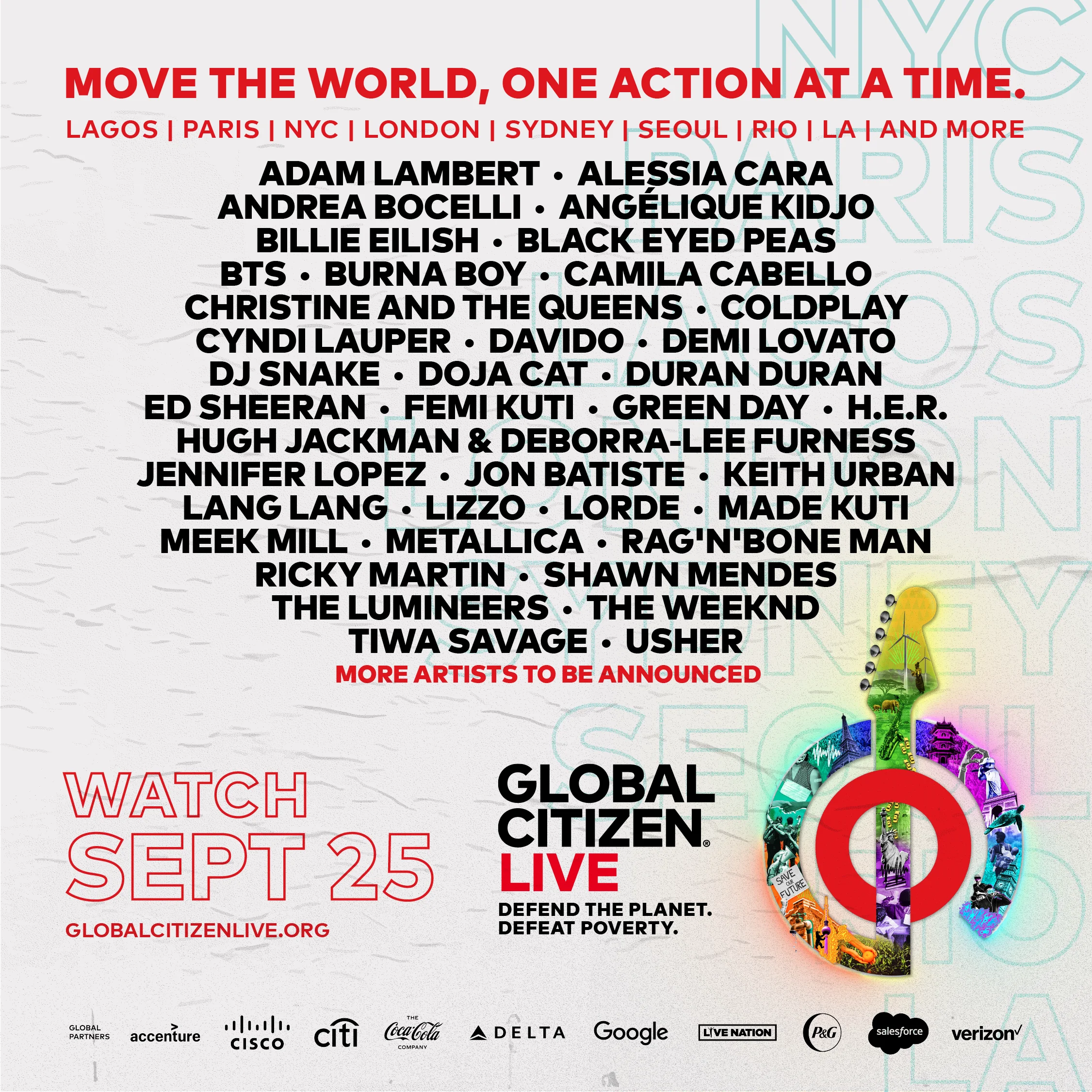It hardly needs to be said, but over the past 18 months COVID-19 has swept the world, with over 195 million confirmed cases to date globally and every one of us having been impacted in some way by the pandemic.
But the pandemic’s impacts have not been equally felt, with some people and regions being much harder hit than others. This is particularly true in Africa, where the crisis has been magnified by the fact that many countries were already vulnerable prior to the pandemic.
Now, the implications of COVID-19 have served to expose pre-existing inequalities, cutting across numerous social, political, and economic areas, such as health care, education, and gender equality.
As a result Africa’s most vulnerable communities will not be able to recover alone, and the continent’s philanthropists need to step up and support those most in need.
In 2020, Global Citizen launched the Give While You Live campaign, which urges philanthropists to give a minimum of 5% of their wealth away every year to an important cause or issue area — such as COVID-19 response and relief, particularly among marginalized communities including people of color; those living in extreme poverty; and others facing discrimination. Africa is one of the continents in most need of more commitments — and the continent’s richest people have a unique opportunity to step up.
The pandemic has created a greater surge in extreme poverty on the continent, as it has globally. In 2020, the World Bank estimated that a further 23 million people in sub-Saharan Africa could be pushed into living below the poverty line of $1.90 a day, as a result of the pandemic’s impacts.
Africa’s philanthropists could play a huge role in defeating poverty, but they need to continue joining world leaders, governments, and businesses in using their resources to alleviate poverty — and the systemic inequalities that fuel poverty — on the continent.
Here are three key areas where philanthropists should focus their attention in Africa:
Health Care
The pandemic’s impact on Africa’s already under-resourced health care systems has been significant. To date, at least 6.5 million cases of COVID-19 have been reported on the continent, and this combined with poor infrastructure of public health care, under testing, and the treatment of other existing diseases has strained the already vulnerable health care systems in Africa.
To help alleviate this issue in Nigeria, billionaire businessman Aliko Dangote donated N2.2 billion ($5.3m) earlier this year to his Coalition Against COVID-19, which aims to combat COVID-19 in Nigeria with the help of funding from the Central Bank of Nigeria. Dangote also kicked off a campaign to raise N30 billion ($78.8m) to further amplify this initiative. They will assist in test kit distribution, procurement of beds, and starting a food relief program. Other leaders and donors such as Multichoice, Rand Merchant Bank, MTN, and many more, have since joined this mission.
Education
COVID-19 has had a massive impact on children’s ability to get an education, with tens of millions pushed out of school as a result of closures, economic instability, and more. According to UNICEF, for example, an estimated 40% of all school-aged children — around 69 million children — across Eastern and South Africa are currently not in school.
While, for the majority, developed continents have been able to transition into remote learning from the beginning of the pandemic, for many children in countries across Africa the resources needed to transition to remote learning aren’t available.
According to UNESCO, in sub-Saharan Africa, 89% of learners don’t have access to computers in their homes, while 82% lack internet access. To help bridge this digital divide in South Africa, billionaire philanthropist Patrice Motsepe earlier this year donated R8 million (about $545,000) to primary and secondary schools in Soweto, including Information and Communication Technology (ICT) equipment. The Motsepe Foundation was also a partner for Global Citizen Festival: Mandela 100, hosted in Johannesburg in 2018.
Gender Equality
Globally, gender inequality has also increased over the past year. UN Women Africa shared that across the continent, there has been an increase in the number of gender-based violence reports, with many women and children being left vulnerable and unsafe in their homes.
Economically, African women are also increasingly disadvantaged in their jobs, with the World Bank highlighting that women make up 75% of sub-Saharan Africa’s informal economy. As a result of nationwide lockdowns and other factors, many have suffered a severe loss of income because of the pandemic — a significant contributor to the increase of people living in poverty.
As with all philanthropists globally, philanthropists in Africa have a responsibility to increase their support to countries and communities and to help solve the world’s most pressing crises.
While some of the world’s richest people are stepping up, most are not — and more commitment is needed to help rectify the massive wealth and resource inequalities that exist in the world right now, and to tackle the world’s biggest issues in a way that’s equitable for all.
Much more can be done to drive investment in education, food security, ending the pandemic and ensuring vaccine access, protecting the environment, achieving gender equality, and more. We need those with the resources and power to drive real global change to step up, and we need everyone everywhere to join the call on philanthropists, governments, and the private sector to act now, before it’s too late.
You can join the Global Citizen Live campaign to defeat poverty and defend the planet by taking action here, and become part of a movement powered by citizens around the world who are taking action together with governments, corporations, and philanthropists to make change.
